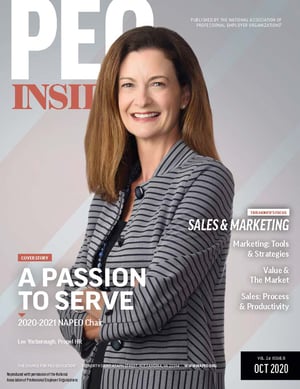Will your vaccination program be mandatory or voluntary? How long will you give employees to get their vaccination and the required follow up shot? How will you handle tracking and enforcing both shots? How will you handle remote, temporary, and pregnant workers? What about customers and vendors? How does your health insurance plan apply? There is a range of complex issues to think through before developing a workplace vaccination plan. As Covid-19 vaccines become more available, employers should think about how to handle vaccines at the workplace. Developing a vaccination plan is the first place to start. Here are a few of the most important areas to address in our COVID-19 Vaccination Plan Checklist.
1. Determine if your Vaccination Strategy is Mandatory or Voluntary. According to a recent Society of Human Resource Management (SHRM) survey, two-thirds (66%) of employers say the Covid-19 vaccination is necessary for business continuity. Nearly two-thirds of organizations say they will encourage employees to get the Covid-19 vaccine, and 64% of workers are likely to get the vaccine once it becomes available. This number increases to more than 75% if the employer mandates a vaccination.
_1.jpeg?width=330&name=AdobeStock_400499448%20(1)_1.jpeg) Recent EEOC guidance allows employers to mandate Covid-19 vaccinations if it follows the guidelines of the Americans with Disabilities Act (ADA) and Title VII of the Civil Rights Act of 1964. Now that employers have a choice between a mandatory or a voluntary vaccination program, it's important to determine the best strategy for your company and your employees.
Recent EEOC guidance allows employers to mandate Covid-19 vaccinations if it follows the guidelines of the Americans with Disabilities Act (ADA) and Title VII of the Civil Rights Act of 1964. Now that employers have a choice between a mandatory or a voluntary vaccination program, it's important to determine the best strategy for your company and your employees.
- Mandatory Vaccination. Generally, a mandatory vaccination program needs to be job-related, consistent with business necessity, and address exceptions for those who cannot be vaccinated because of disabilities or sincerely held religious beliefs.
For employers in certain industries, such as healthcare and meatpacking, the decision to mandate the Covid-19 vaccination will be easy as failure to be vaccinated poses a direct threat and puts other employees, customers, or the general public at risk. Determine the legal and practical risks associated with mandating employee vaccination and what should be included in such a policy. Establish a system to track compliance, including a reasonable timeframe to allow employees to get their vaccination, and the required follow up shot.
- Voluntary Vaccination. How will you respond when an employee alleges that you failed to provide a safe and healthy work environment, as required by OSHA? Will you offer incentives, such as wellness credits or extra paid time off? If your position is a voluntary one, educate your employees and make it easy for them to receive the vaccine. And be prepared to address all potential liability issues and responsibilities for safety.
2. Determine Who Should Receive the Vaccine. The CDC recently published recommendations to determine which employee groups should be vaccinated first and guidance on who should be vaccinated when vaccine supplies are limited.
 3. Determine the Process for Providing Proof of Vaccination. Under EEOC, employers can mandate proof of vaccination but cannot require that the employee provide medical information as part of that proof. In your vaccination plan, address your process for proof of vaccination with employees, as well as customers, vendors, temporary workers, and others connected to your workplace.
3. Determine the Process for Providing Proof of Vaccination. Under EEOC, employers can mandate proof of vaccination but cannot require that the employee provide medical information as part of that proof. In your vaccination plan, address your process for proof of vaccination with employees, as well as customers, vendors, temporary workers, and others connected to your workplace.
4.Review the Requirements for Exemption. All employers, including state and local government employers, with 15 or more employees are covered under the ADA and Title VII. Based on EEOC guidance, some federal and state laws allow exemptions that protect employees who are not able to receive the Covid-19 vaccine, particularly those with a disability or a sincerely held religious belief.
Employers should also be familiar with exemption guidance from OSHA, PREP ACT (HHS), National Labor Relations Act (NLRA), FLSA, state Workers’ Comp laws, as well as state and local legislation.
 5. Outline the Process for Reasonable Accommodations. Can the employee claiming an exemption perform their job without vaccination and still preserve the health and safety of the workplace?
5. Outline the Process for Reasonable Accommodations. Can the employee claiming an exemption perform their job without vaccination and still preserve the health and safety of the workplace?
Develop a practical guide to address an employee’s reasonable accommodation requests based on medical or religious objections to the vaccine. Whether this includes working remotely or moving the employee to a separate area, make sure your procedure for accommodations is consistent for all employees and clearly outlined in your plan.
6. Determine How to Handle Employees Who Refuse to be Vaccinated. Under the EEOC, the vaccination provider of an Emergency Use Authorization (EUA) vaccine must inform recipients about the potential risks and the option to accept or refuse the vaccine. What if an employee refuses? While employers are not required to make accommodations for an employee who doesn’t want to be vaccinated, it’s important to address how to handle the situation in your vaccination plan, including procedures for documentation and follow-up.
7. Consider the Terms for Termination. If reasonable accommodation is not possible, an employer may exclude the employee from the workplace but would need to determine if other rights apply under EEO laws or other federal, state, and local legislation before terminating the employee.
 8. Understand Confidentiality Issues. It is against the law for employers to disclose employees receiving a reasonable accommodation or identify employees that have or have not been vaccinated. In addition, under ADA, employers must store employee medical information, which includes Covid-19 vaccine information, separately from personnel files.
8. Understand Confidentiality Issues. It is against the law for employers to disclose employees receiving a reasonable accommodation or identify employees that have or have not been vaccinated. In addition, under ADA, employers must store employee medical information, which includes Covid-19 vaccine information, separately from personnel files.
9. Detail All Covered Costs. Under the Fair Labor Standards Act (FLSA) and some state and local laws, employers must cover certain work-related expenses. In a mandatory vaccination program, the employer may be required to cover the cost of the vaccine and pay for an employee's time spent while getting the vaccine. Review your health plan and outline how you will cover the vaccination cost as well as other expenses.
10. Determine How to Handle Potential Vaccine Side Effects and Sick Leave. While the full requirements under the Families First Coronavirus Response Act (FFCRA) were not extended into 2021, employers can allow employees to take unused FFCRA paid sick and family leave and receive the federal tax credit through March 31, 2021. Determine how you will handle sick leave as a result of coronavirus-related absences.
11. Designate a Vaccine Coordinator and Train Staff. Don’t overlook training in your plan. Under EEOC guidance, staff responsible for communicating your vaccination plan should understand how to recognize an employee’s accommodation request, for example. Train your vaccine team to oversee all elements of implementing your vaccination plan.
 12. Review and Update Your Company’s Safety Plan. The vaccine is not the end of the pandemic. Address your current safety practices for Covid-19 in your workplace vaccination plan. Continue to keep detailed records outlining the actions you take to protect your workers, such as remote work options, mask mandates, and ways in which you encourage your employees to get the vaccine.
12. Review and Update Your Company’s Safety Plan. The vaccine is not the end of the pandemic. Address your current safety practices for Covid-19 in your workplace vaccination plan. Continue to keep detailed records outlining the actions you take to protect your workers, such as remote work options, mask mandates, and ways in which you encourage your employees to get the vaccine.
13. Communicate in a Way that Educates and Builds Trust. Similar to wearing masks, the Covid-19 vaccination is not without controversy. Before you roll out your vaccination program, prepare and tailor your messages based on different job functions and your industry. Keep messages positive and focus on the benefits of getting vaccinated and not the consequences. Deliver messages across multiple channels, such as the company intranet, newsletter, FAQs, zoom meetings, social media, phone calls, and one-on-one meetings.
Watch for New Developments
EEOC laws, including the ADA and Rehabilitation Act, continue to apply during the pandemic but do not interfere with or prevent employers from following guidelines from the CDC or state and local public health authorities. As guidance on the Covid-19 vaccination continues to evolve, stay up to date on new developments, resources, and changes that may impact workplace safety. Also, consult your legal counsel and HR advisors for further advice on developing a vaccination plan for your business.
 Propel HR President Lee Yarborough was recently elected Chair of the National Association of Professional Employer Organizations (NAPEO) Board of Directors. She spoke with PEO Insider magazine to share where she thinks the industry is headed and how NAPEO can continue to grow.
Propel HR President Lee Yarborough was recently elected Chair of the National Association of Professional Employer Organizations (NAPEO) Board of Directors. She spoke with PEO Insider magazine to share where she thinks the industry is headed and how NAPEO can continue to grow.
Download a pdf version of the full interview: A Passion To Serve
About Propel HR. Propel HR is an IRS-certified PEO that has been a leading provider of human resources and payroll solutions for 25 years. Propel partners with small to midsized businesses to manage payroll, employee benefits, compliance and risks, and other HR functions in a way that maximizes efficiency and reduces costs.
PLEASE NOTE: This information is for general reference purposes only. As we continue to work during an active pandemic, laws, regulations, and filing deadlines are likely to change. Please check with the appropriate organizations or government agencies for the latest information and consult your employment attorney and/or benefits advisor regarding your responsibilities. In addition, your company may be exempt from certain requirements and/or be subject to different requirements under the laws of your state. (Updated February 17, 2021)












